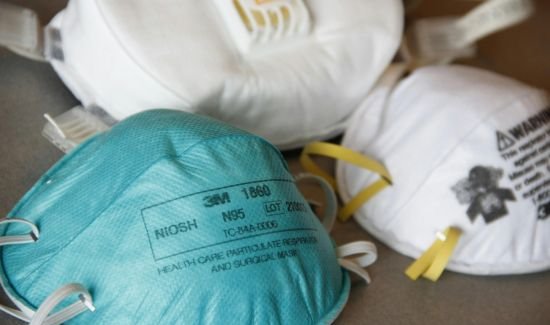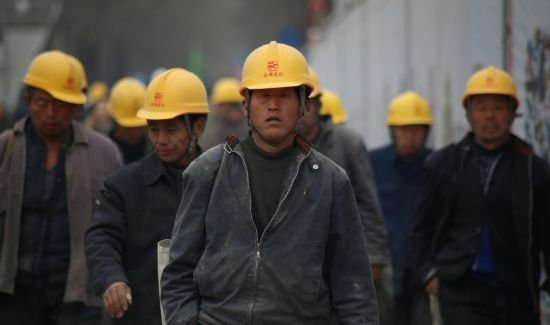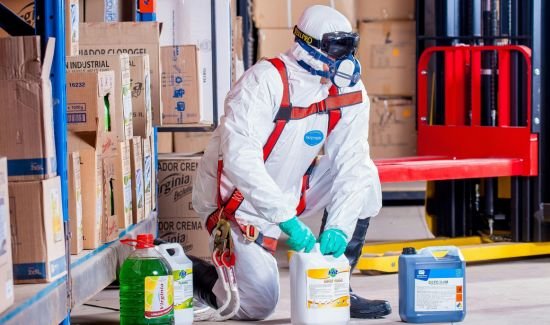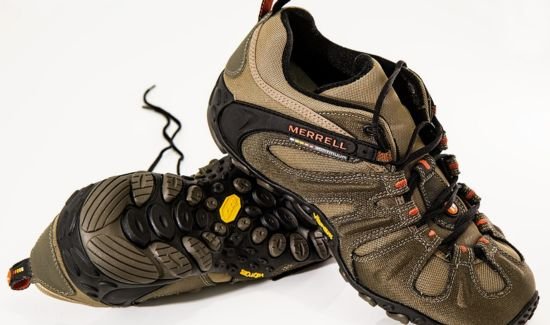
The use of PPE is essential to prevent workplace injuries and ensure safety. The right gear, such as gloves and eye protection, reduces risks and keeps workers safe. Many accidents can be prevented by following these PPE Safety Tips. For more safety insights, check out our Random Daily Safety Guideline to stay informed and safe every day.
1. Importance of PPE in High-Risk Jobs
The importance of PPE (personal protective equipment) is underestimated by most people. But it is important to prevent injury. A case study by the United States Bureau of Labor Statistics found that 60% of workers who did not wear eye protection were injured. PPE can prevent common workplace accidents.
2. Choose appropriate PPE

Using the correct PPE is very important to minimize risk. A case study of a construction site shows that people using the wrong materials experienced skin irritation from the chemicals. It is important to use specific PPE for your job.
3. Importance of correct size
Wrongly fitting PPE can cause more damage. The use of oversized gloves in a manufacturing plant resulted in increased injuries. Choosing the right size keeps you more comfortable and protected.
4. Importance of Routine Inspection
PPE gets old with time, and it is important to check it on time. Once a faulty helmet caused a head injury. Replacing damaged PPE is a simple step that can prevent many serious accidents.
5. Training is an important part

A case observe of a warehouse shows that folks that acquired PPE training had 25% fewer accidents than individuals who did not. It is vital to understand the appropriate use of PPE.
6. Don’t ignore respiratory protection
In a chemical plant, employees were not wearing masks and had 40% more breathing problems than people who were using the correct PPE. Wearing a respirator keeps you safe from chemical fumes.
7. Foot Protection Prevents Major Accidents
Foot injuries are common in construction and other industries. Steel toe shoes prevent breakage and injury from impacts. In a logistics company, The introduction of foot protection reduces injuries by 30%, but this can be very damaging to workers. Proper shoes guarantee safety and comfort.
8. Glove Up: Protect Your Hands

Hands are most commonly injured in manual labor jobs. One factory reduced injuries by 50% by using cut-resistant gloves. Gloves are very important when handling sharp tools or chemicals. They not only provide protection but also increase productivity. Wearing the right gloves reduces the chance of injuries.
9. Hearing Protection is Not Optional
Exposure to excessive noise can cause permanent hearing damage. A mining study found that without ear protection 70% of workers were at risk of hearing loss. Earplugs or earmuffs can prevent this damage. Small measures of noise reduction also protect hearing.
10. PPE in Hot Environments: Stay Cool, Stay Safe
Working in hot environments can lead to heat illnesses. One study found that workers without heat-resistant PPE were 35% more likely to suffer heatstroke. The right gear controls body temperature and prevents fatigue. PPE is essential for safety in hot areas.
11. Eye Protection is Critical

Eye injuries are common in areas like construction. In one workshop 40% of eye injuries occurred because goggles were not worn. Simple safety glasses can prevent a lot of damage. Wearing eye protection is a must in high-risk environments.
12. Proper Storage of PPE Matters
Wrong storage can cause PPE to fail during operation. In one case, helmets kept in the sun become brittle and break. Keeping PPE in the right place, in a cool and dry place, increases its life. Proper storage keeps both the desk and its gear safe.
13. PPE for Electric Work

Electricians need special PPE for protection. One study found that using insulated gloves and boots greatly reduced electrical burns. The right PPE protects against life-threatening shocks. Wearing the right gear is very important for those working with electricity. For more safety insights, check out our workplace electrical safety to stay informed and safe every day.
14. Chemical Protection: Don’t Take Chances
Handling chemicals without proper PPE can be very harmful. One lab study found that 45% of workers who did not wear chemical-resistant suits suffered skin burns. Protective suits are necessary when working with chemicals. These greatly reduce the risk of exposure.
15. Regular Updates on PPE Guidelines
PPE guidelines change with technology. An oil refinery survey found that those following the updated guidelines had 20% fewer injuries. Staying updated ensures safety. Regular training on new PPE standards is very important for workplace safety.
For additional safety tips during the holiday season, check out our blog on Safety Guidelines for Christmas Holidays to ensure a safe and happy festive season.




